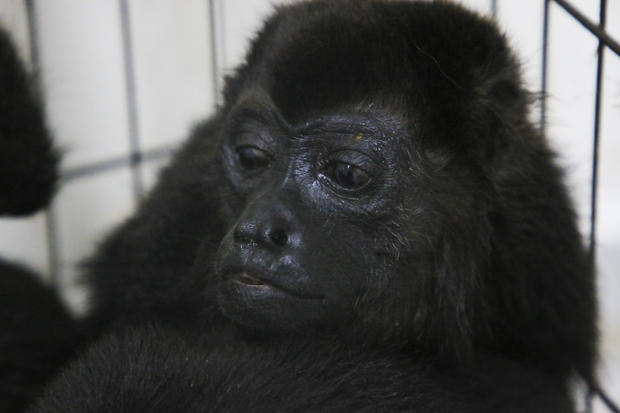
Over 150 monkey deaths now linked to heat wave in Mexico: “There are going to be a lot of casualties”
The number of heat-related howler monkeys deaths in Mexico has risen to 157, the government said, with a tragically small number of the primates treated or recovering.
A heat dome — an area of strong high pressure centered over the southern Gulf of Mexico and northern Central America — has blocked clouds from forming and caused extensive sunshine and hot temperatures all across Mexico. Earlier in May, Mexico reported record-high temperatures in 10 cities, including the capital.
Last week, environmentalists had reported that 138 of the midsize primates, known for their roaring vocal calls, had been found dead in the Gulf coast state of Tabasco since May 16. On Sunday, the Environment Department reported that number had risen to 157, and that research was continuing into the causes of the deaths.
said. COBIUS, a wildlife preservation group based in Tabasco, Mexico, previously said that people can host a bucket of water by rope for the primates to drink from.
It’s not just the howler monkeys suffering as temperatures rise. In the northern state of San Luis Potosi, Ena Buenfil, the director of the Selva Teenek eco-park, told The Associated Press that her facility has been overwhelmed as parrots, bats, and toucans have succumbed to the heat. The eco-park said it has received reports that at least 100 parrots, bats and other animals have died, apparently of dehydration.
Luis Sanchez / AP
Buenfil said when the heat wave began in mid-May, the clinic quickly filled up with sick birds. Locals also reported finding dead or suffering birds.
Because of scarce resources from authorities, Buenfil said the number is likely only a small percentage of the animals affected, but added that their organization has worked with Civil Protection to aid some birds.
Buenfil said birds mainly die of dehydration in the heat, and are often disproportionately affected because they don’t have anywhere to store water. Meanwhile, bats would become dehydrated sleeping in the beating afternoon heat. She recommended that locals put out bowls of water for animals.
“We’ve never seen a situation like what’s happening right now,” she said, adding if they see more heat peaks like this one “there is not going to be much we can do for the animals.”
“There are going to be a lot of casualties to the ecosystem if we continue this trend of heat waves in the region,” said Buenfil.
With below-average rainfall throughout almost all of Mexico so far this year, lakes and dams are drying up, and water supplies are running out. Authorities have had to truck in water for everything from hospitals to fire-fighting teams. Low levels at hydroelectric dams have contributed to power blackouts in some parts of the country.
Source: cbsnews.com